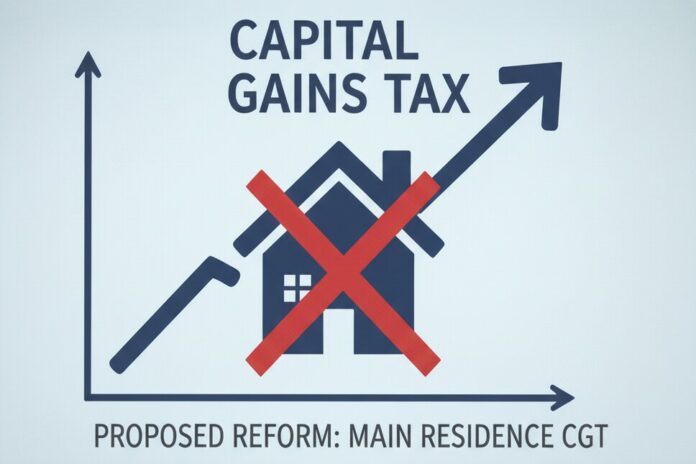A proposed reform that would apply Capital Gains Tax (CGT) to main residences has triggered widespread alarm among UK homeowners with new research showing overwhelming opposition to the policy and deep concerns about its potential impact on the housing market.
Under current rules, main homes are exempt from CGT, which is only levied on profits from the sale of second homes, investment properties, shares and other assets.
The proposed change would remove or reduce this exemption for higher-value primary homes, meaning homeowners could face a tax bill when selling their main residence. While details of thresholds and rates have yet to be confirmed, the policy has already provoked a strong public backlash.
According to a UK-wide survey commissioned by Boon Brokers, 97% of respondents disagreed that applying CGT to main homes would be the fairest way to balance public spending, and 73% said such a move would be unfair because “homeowners have already paid enough.”
UPHILL BATTLE
The findings suggest that the government faces an uphill battle to convince voters that the policy would deliver either fairness or fiscal stability.
The research also found that 71% of respondents would be less likely to sell their main residence if the reform were implemented, raising fears of a market slowdown. Economists warn that this could reduce housing supply and worsen affordability pressures for first-time buyers, compounding existing challenges across the property ladder.
Boon Brokers’ analysis shows that opposition to the proposed changes cuts across every demographic and region of the UK, from the South East to Scotland and Wales.
“The policy would punish those who have built long-term financial plans.”
Many homeowners believe the policy would punish those who have built long-term financial plans around the existing exemption, while offering little tangible benefit to public finances.
The behavioural impact could be significant. Among respondents aged 55 and over, more than 80% said they would be less willing to sell under a CGT regime, suggesting the reform could deter downsizing and further constrict housing supply. Younger households, too, expressed resistance, with 76% of those aged 18-24 saying they would delay selling.
POLITICAL RAMIFICATIONS
More than three-quarters (78%) of respondents believe the proposed reform would damage Labour’s chances of re-election, with nearly half saying it would “significantly” do so.
When asked how the government should instead balance public finances, 32% said they favoured reducing public spending rather than introducing new taxes.
Others supported targeting high-income earners or introducing a wealth tax on the ultra-rich.
SERIOUS CONSEQUENCES

Gerard Boon, Boon Brokers managing director, said: “Introducing Capital Gains Tax on main residences could have serious consequences for the housing market.
“When fewer homeowners are willing to sell, supply will naturally constrict, driving up competition and prices.
“This imbalance between supply and demand doesn’t just impact affordability, it would risk stagnating the market and placing greater pressure across all levels of the housing market.”





